22006 Commentary on the Song of Songs
The Wedding Night
The Song of Songs 4:1-5:1
Download PDF:
https://od.lk/f/MV8zNDE2OTA2Mzdf
https://od.lk/fl/MV8xODI0MzMzNl8
Please share this website with all your friends and family members. Thank you, and God bless.
All the Bible verses quoted in this article are from the King James Version, unless otherwise noted.
The Song of Songs 4:1-16
1 Behold, thou art fair, my love; behold, thou art fair; thou hast doves’ eyes within thy locks: thy hair is as a flock of goats, that appear from mount Gilead.
2 Thy teeth are like a flock of sheep that are even shorn, which came up from the washing; whereof every one bear twins, and none is barren among them.
3 Thy lips are like a thread of scarlet, and thy speech is comely: thy temples are like a piece of a pomegranate within thy locks.
4 Thy neck is like the tower of David builded for an armoury, whereon there hang a thousand bucklers, all shields of mighty men.
5 Thy two breasts are like two young roes that are twins, which feed among the lilies.
6 Until the day break, and the shadows flee away, I will get me to the mountain of myrrh, and to the hill of frankincense.
7 Thou art all fair, my love; there is no spot in thee.
8 Come with me from Lebanon, my spouse, with me from Lebanon: look from the top of Amana, from the top of Shenir and Hermon, from the lions’ dens, from the mountains of the leopards.
9 Thou hast ravished my heart, my sister, my spouse; thou hast ravished my heart with one of thine eyes, with one chain of thy neck.
10 How fair is thy love, my sister, my spouse! how much better is thy love than wine! and the smell of thine ointments than all spices!
11 Thy lips, O my spouse, drop as the honeycomb: honey and milk are under thy tongue; and the smell of thy garments is like the smell of Lebanon.
12 A garden inclosed is my sister, my spouse; a spring shut up, a fountain sealed.
13 Thy plants are an orchard of pomegranates, with pleasant fruits; camphire, with spikenard,
14 Spikenard and saffron; calamus and cinnamon, with all trees of frankincense; myrrh and aloes, with all the chief spices:
15 A fountain of gardens, a well of living waters, and streams from Lebanon.
16 Awake, O north wind; and come, thou south; blow upon my garden, that the spices thereof may flow out. Let my beloved come into his garden, and eat his pleasant fruits.
The Song of Songs 5:1
1. I am come into my garden, my sister, my spouse: I have gathered my myrrh with my spice; I have eaten my honeycomb with my honey; I have drunk my wine with my milk. Eat, O friends; drink, yea, drink abundantly, O beloved.
In this lesson, we will explore the meaning of the exchange between Solomon and Shulamite on their wedding night. But first, we need to remember:
-
The Song of Songs is not an allegory about the love between Christ and the Church but rather a collection of poems forming a love song that recounts the romance between King Solomon and Shulamite, the one he loved most among his queens and concubines. However, through the love between Solomon and Shulamite, we can still derive spiritual lessons about the love between Christ and the Church. The Bible likens the love between husband and wife to the love between Christ and the Church.
-
We do not “spiritualize” Solomon’s praises of Shulamite’s physical features. In other words, we do not seek to interpret what Shulamite’s eyes, hair, teeth, lips, mouth, cheeks, neck, breasts, etc., symbolize in relation to the Church.
-
The comparisons in the poetic verses should not be understood literally but in terms of their qualitative implications. For example, the phrase “thy hair is as a flock of goats that appear from Mount Gilead” should be understood to mean that her hair is dark and smooth, as beautiful as the wool of well-fed, healthy goats grazing on the slopes of Gilead.
-
The descriptions and comparisons of the beauty of the male and female bodies in the Song of Solomon are similar to those found in poetry about love and marriage among the peoples of the Middle East at that time. While these descriptions and comparisons might not seem romantic to us, they were considered romantic and were literary standards for the peoples of the Middle East in that era.
-
The desire to find satisfaction in a sexual relationship with the one you love is legitimate. Husbands and wives should openly communicate their sexual desires with each other.
-
Sexual pleasure is a gift from God. Sexual relations must occur within the boundaries of God’s law and can only take place within the marital relationship between a man and a woman. The union of husband and wife as one flesh can only be realized after the wedding.
-
It is not just the genital organs but all parts of the body that experience sexual pleasure. In other words, while the primary function of the genital organs is to propagate the lineage through conception and childbirth, sexual pleasure is not exclusive to the genital organs. All parts of our body, such as the eyes, nose, cheeks, neck, lips, mouth, inside the mouth, chest, arms, thighs, etc., can respond to sexual pleasure.
By keeping these seven points in mind, we will be able to correctly understand the meaning of the Song of Songs 4:1-5:1 and gain the lessons about love and sexuality in married life that God wants to teach us.
Below is the passage division according to the context of the Song of Songs 4:1-5:1.
I. The Engagement Stage (1:2-3:5)
A. Love for Each Other (1:2-2:7)
1. Shulamite’s Love for Solomon (1:2-8)
2. The Language of Love (1:9-2:7)
B. The Maturity of Love (2:8-3:5)
1. The Springtime of Love (2:8-17)
2. The Anxiety in Love (3:1-5)
II. The Wedding (3:6-5:1)
A. The Procession of Fetching the Bride (3:6-11)
B. The wedding night (4:1-5:1)
(1) Solomon: Behold, thou art fair, my love; behold, thou art fair; thou hast doves’ eyes within thy locks: thy hair is as a flock of goats, that appear from mount Gilead. Thy teeth are like a flock of sheep that are even shorn, which came up from the washing; whereof every one bear twins, and none is barren among them. Thy lips are like a thread of scarlet, and thy speech is comely: thy temples are like a piece of a pomegranate within thy locks. Thy neck is like the tower of David builded for an armoury, whereon there hang a thousand bucklers, all shields of mighty men. Thy two breasts are like two young roes that are twins, which feed among the lilies.
(2) Solomon: Until the day break, and the shadows flee away, I will get me to the mountain of myrrh, and to the hill of frankincense. Thou art all fair, my love; there is no spot in thee.
(3) Solomon: Come with me from Lebanon, my spouse, with me from Lebanon: look from the top of Amana, from the top of Shenir and Hermon, from the lions’ dens, from the mountains of the leopards. Thou hast ravished my heart, my sister, my spouse; thou hast ravished my heart with one of thine eyes, with one chain of thy neck.
(4) Solomon: How fair is thy love, my sister, my spouse! how much better is thy love than wine! and the smell of thine ointments than all spices! Thy lips, O my spouse, drop as the honeycomb: honey and milk are under thy tongue; and the smell of thy garments is like the smell of Lebanon. A garden inclosed is my sister, my spouse; a spring shut up, a fountain sealed. Thy plants are an orchard of pomegranates, with pleasant fruits; camphire, with spikenard, Spikenard and saffron; calamus and cinnamon, with all trees of frankincense; myrrh and aloes, with all the chief spices: A fountain of gardens, a well of living waters, and streams from Lebanon.
(5) Shulamite: Awake, O north wind; and come, thou south; blow upon my garden, that the spices thereof may flow out. Let my beloved come into his garden, and eat his pleasant fruits.
(6) Solomon: I am come into my garden, my sister, my spouse: I have gathered my myrrh with my spice; I have eaten my honeycomb with my honey; I have drunk my wine with my milk.
(7) The Daughters of Jerusalem: Eat, O friends; drink, yea, drink abundantly, O beloved.
Next, let us explore the meaning of each verse:
(1) Solomon: “Behold, thou art fair, my love; behold, thou art fair; thou hast doves’ eyes within thy locks: thy hair is as a flock of goats, that appear from mount Gilead. Thy teeth are like a flock of sheep that are even shorn, which came up from the washing; whereof every one bear twins, and none is barren among them. Thy lips are like a thread of scarlet, and thy speech is comely: thy temples are like a piece of a pomegranate within thy locks. Thy neck is like the tower of David builded for an armoury, whereon there hang a thousand bucklers, all shields of mighty men. Thy two breasts are like two young roes that are twins, which feed among the lilies.”
The participle “behold” (H2009) is often used with verbs of seeing or discovering to make the tone more vivid, inviting the reader or listener to share in the sense of amazement, astonishment, and delight with the writer or speaker.
The adjective “fair” (H3303) includes the following meanings: lovely, attractive, beautiful, handsome, good, and pleasant.
The noun “love” (H7473) has a specific meaning as a female companion or close girlfriend and a broader meaning as a female beloved. This term is used once in Judges 11:37 to refer to the close friends of Jephthah’s daughter, and it is used nine times in the Song of Songs to denote a female beloved.
On the wedding night, Solomon faces Shulamite, gazes at her, and praises her beauty. Solomon refers to Shulamite as his beloved and commends her for her beauty. He then describes her beauty in detail.
Solomon begins with the eyes and compares his beloved’s eyes, hidden behind a veil, to doves’ eyes, implying that her eyes are beautifully clear and gentle, reflecting a simple, innocent, and pure spirit. The Word of God likens our eyes to the lamp of the body:
“The light of the body is the eye: if therefore thine eye be single, thy whole body shall be full of light.” (Matthew 6:22).
Thus, the beauty of the eyes is not just an external feature but also reflects the beauty of a simple, holy, meek, and peaceful spirit, bringing joy and comfort to others.
Solomon compares Shulamite’s black, smooth hair, which is styled in many locks, to a flock of well-fed, healthy black goats grazing on the lush pastures of the Gilead region. Gilead is actually a highland area with many hills, located east of the Jordan River, and today it is part of the territory of Jordan. Black goat hair is a valuable specialty of the Middle Eastand is often used for tents, cloaks, and rugs.
Solomon compares Shulamite’s white, even, clean, and beautiful teeth to a flock of freshly shorn sheep coming up from their bath.
Shulamite’s lips are a fresh, rosy color like red thread, and her mouth is charming and graceful when she speaks, smiles, or pouts.
Shulamite’s cheeks are blushing like pomegranates, and the thin white veil she wears accentuates her modest and shy demeanor.
The neck of Shulamite is slender and tall, adorned with a gold chain and silver buds made by the queens and concubines for her (1:11), leading Solomon to compare it to the armory tower built by King David, with a thousand round shields of the valiant warriors of Israel hanging upon it.
Shulamite’s full, vibrant breasts are compared by Solomon to a pair of healthy, fat twin gazelles grazing among the lilies.
Through Solomon’s descriptions and praises of Shulamite’s physical beauty, we see that there is nothing wrong with admiring and appreciating physical beauty. It is only when we idolize physical beauty that we err. We can also observe that sexual arousal and stimulation can come from any part of the body, not just the genitalia. Therefore, it is inappropriate for unmarried couples to be intimate or physically touch each other, including actions like stroking hair or holding hands. Vietnamese proverbs liken the close proximity between a man and a woman to a straw near a fire. Just as a straw close to fire will catch fire, so too will intimacy between a man and a woman lead to sexual temptation and then fornication.
Verse (1) can be paraphrased as follows: Solomon says to Shulamite, “Oh, my beloved! You are incredibly beautiful! Your stunning beauty leaves me at a loss for words! The veil cannot hide your large, round eyes, sparkling and innocent, as beautiful as a dove’s eyes. Your hair, black and smooth, is as lovely as the black fleece of strong, plump goats resting on Mount Gilead. Your teeth are white and even, like a flock of sheep freshly shorn and washed. Everything is in pairs, well-proportioned. Your lips are rosy, like a pink thread. Your mouth is charming and graceful, whether smiling, speaking, or pursing. The veil cannot hide your cheeks, which are as rosy as pomegranates. Your neck is slender and tall, like the tower of weapons built by King David. The gold chain with silver pendants around your neck is like a thousand shields of warriors hung on the tower. Your breasts are full and lively, like two young gazelles grazing among the lilies.”
Spiritual Lesson: The spiritual beauty of the Church is something that Christ has paid the highest price to bring to the Church:
“Looking for that blessed hope, and the glorious appearing of the great God and our Saviour Jesus Christ; Who gave Himself for us, that He might redeem us from all iniquity, and purify unto Himself a peculiar people, zealous of good works.” (Titus 2:13-14).
“And from Jesus Christ, who is the faithful witness, and the first begotten of the dead, and the prince of the kings of the earth. Unto Him that loved us, and washed us from our sins in His own blood, And hath made us kings and priests unto God and His Father; to Him be glory and dominion for ever and ever. Amen.” (Revelation 1:5-6).
Christ always pays attention to every aspect of the Church’s spiritual beauty. Therefore, every aspect of the lives of God’s people must always preserve the spiritual beauty that Christ has given them:
“So, whether you eat or drink, or whatever you do, do all to the glory of God. Give no offense to Jews or to Greeks or to the church of God.” (1 Corinthians 10:31-32)
Let us live in such a way that on the Wedding Day of the Lamb, we will be beautiful and radiant, fitting for the status of the Bride of Christ. (Revelation 19:7-9).
(2) Solomon: “Until the day break, and the shadows flee away, I will get me to the mountain of myrrh, and to the hill of frankincense. Thou art all fair, my love; there is no spot in thee.”
“Until the day break, and the shadows flee away” is a literary expression describing the early morning breeze at dawn, driving away the darkness. Solomon tells Shulamite that he will immerse himself in intimate relations with her throughout the night. Shulamite’s breasts are compared to the mountain of myrrh, and her genitals are compared to the hill of frankincense, which Solomon alone has the right to explore.
After the intimate encounter, Solomon confirms Shulamite’s virginity. “Thou art all fair” implies beauty both inside and out. “There is no spot in thee” suggests that Shulamite is a virgin.
Verse (2) can be paraphrased as follows: Beloved of mine! Until dawn breaks and the morning breeze dispels the darkness, I will immerse myself in the fragrance of your body. Your breasts are like two peaks of myrrh, and your genitals are like two hills emitting the scent of frankincense. All of this is exclusively for me. Beloved, you are beautiful and pure, from your spirit to your flesh. You are pure, flawless, and without blemish!
Spiritual Lesson: The Bible often uses the imagery of adultery and prostitution to refer to God’s people worshiping idols. Idols can be images of false gods, but they can also be anything we value more than God, including pride and false self-esteem. When we prefer a false god or anything we cherish more than God, we commit spiritual adultery. When we chase after false gods or anything we desire more than God in exchange for fame, gain, power, etc., we become spiritual prostitutes. We were created by God, for God, and belong to God. God paid the highest price to redeem us from slavery to sin and its consequences. We should live for God and die for God.
“What? know ye not that your body is the temple of the Holy Ghost which is in you, which ye have of God, and ye are not your own? For ye are bought with a price: therefore glorify God in your body, and in your spirit, which are God’s.” (1 Corinthians 6:19-20)
“For none of us liveth to himself, and no man dieth to himself. For whether we live, we live unto the Lord; and whether we die, we die unto the Lord: whether we live therefore, or die, we are the Lord’s.” (Romans 14:7-8)
The intimate relationship between the Lord and us is even more profound and personal than the relationship between husband and wife. We should always keep ourselves pure by living according to God’s Word (John 17:17) so that we may be worthy of such a close relationship with the Lord.
The Church’s perfection and blamelessness are both a gift from Christ, a providence of God, and a result of the Church’s own self-discipline.
“For it is God which worketh in you both to will and to do of His good pleasure. Do all things without murmurings and disputings: That ye may be blameless and harmless, the sons of God, without rebuke, in the midst of a crooked and perverse nation, among whom ye shine as lights in the world;” (Philippians 2:13-15)
“And you, that were sometime alienated and enemies in your mind by wicked works, yet now hath he reconciled In the body of His flesh through death, to present you holy and unblameable and unreproveable in His sight: If ye continue in the faith grounded and settled, and be not moved away from the hope of the gospel, which ye have heard, and which was preached to every creature which is under heaven; whereof I Paul am made a minister;” (Colossians 1:21-23)
“And the very God of peace sanctify you wholly; and I pray God your whole spirit and soul and body be preserved blameless unto the coming of our Lord Jesus Christ.” (1 Thessalonians 5:23)
“Having therefore these promises, dearly beloved, let us cleanse ourselves from all filthiness of the flesh and spirit, perfecting holiness in the fear of God.” (2 Corinthians 7:1)
Just as a bride-to-be vows to remain pure and chaste until the wedding day, the Church must also keep itself pure and holy until the Wedding Feast of the Lamb.
(3) Solomon: “Come with me from Lebanon, my spouse, with me from Lebanon: look from the top of Amana, from the top of Shenir and Hermon, from the lions’ dens, from the mountains of the leopards. Thou hast ravished my heart, my sister, my spouse; thou hast ravished my heart with one of thine eyes, with one chain of thy neck.”
In Solomon’s time, the mountains of Amana, Senir, and Hermon all belonged to the region of Lebanon. Mount Amana today is part of Syria, near the border with Lebanon. Mount Senir is a peak in the Hermon range, which is now part of Lebanon.
Lebanon, which means “white,” is renowned for its cedar forests, also known as the cedar tree. The name Lebanon likely originates from the fact that the mountain peaks in the region are almost perpetually covered in white snow (Jeremiah 18:14). Lebanon is a strip of land formed by two parallel mountain ranges running along the Mediterranean coast, bordering the northern edge of Israel. The valley between the two mountain ranges is known as the Lebanon Valley (Joshua 11:17; 12:7). The Old Testament mentions Lebanon 71 times and praises its beauty and valuable resources. Cedarwood from Lebanon was highly prized by neighboring countries. The Temple of God, built by King Solomon, and Solomon’s palace were constructed with Lebanon’s cedarwood (1 Kings 6, 7). King David’s palace was also built with Lebanon’s cedarwood (2 Samuel 5:11). Many musical instruments were also made from cedarwood (2 Samuel 6:5).
Solomon’s song likens Lebanon to a blessed and flourishing marital life from God. The love between husband and wife will be as beautiful as the olive tree, budding like lilies, and steadfast like the mountains of Lebanon. Married life will be filled with the sweet fragrance of love, abundant with the vitality of joy, and as intoxicating as the aroma of fine wine. This is akin to God’s love for the people of Israel, as recorded by the prophet Hosea:
“I will be as the dew unto Israel: he shall grow as the lily, and cast forth his roots as Lebanon. His branches shall spread, and his beauty shall be as the olive tree, and his smell as Lebanon. They that dwell under his shadow shall return; they shall revive as the corn, and grow as the vine: the scent thereof shall be as the wine of Lebanon.” (Hosea 14:5-7)
Although Lebanon’s high mountains, covered in snow year-round, have many valuable trees, they are also home to wild beasts. From the heights of love’s happiness, Solomon and Shulamite could face life’s difficulties together, much like overcoming lion’s dens and the mountains of leopards.
Solomon admits that he has deeply loved Shulamite ever since her eyes and noble beauty ravished his heart. The verb “ravished” (H3823) in the original Hebrew of the Bible means to capture, make the heart beat fast, or fill the heart with pleasure. Through Shulamite’s gaze, Solomon recognized her ardent and sincere affection for him, as well as her simplicity and innocence. Both Shulamite’s inner and outer beauty conquered Solomon’s heart.
Verse (3) can be paraphrased as follows: Dear new wife of mine! Come to me! Let us face all circumstances in life together, from the heights of love’s happiness, like the mountains of Lebanon. Our love will grow stronger and endure over time. Even though difficulties may arise, we will overcome them together, just as we would face lion’s dens and the mountains of leopards. You have captured my heart! Oh, my sister! Oh, my new wife! You have captured my heart with a loving, earnest look from your eyes and a necklace around your neck, which highlights your noble beauty.
Spiritual Lesson: Christ invites the Church to come to Him, to live in His love, and to walk through life with Him, overcoming every attack of the devil. He also desires that the Church maintain its first love for Him (Revelation 2:4). The prophecy in Hosea 14:5-7 applies both to the physical people of Israel and to the spiritual Israel, that is, the Church. The Church will be established forever, and each of us has the duty to preserve the purity of the Church, keeping its love for Christ fervent and warm.
(4) Solomon: “How fair is thy love, my sister, my spouse! how much better is thy love than wine! and the smell of thine ointments than all spices! Thy lips, O my spouse, drop as the honeycomb: honey and milk are under thy tongue; and the smell of thy garments is like the smell of Lebanon. A garden inclosed is my sister, my spouse; a spring shut up, a fountain sealed. Thy plants are an orchard of pomegranates, with pleasant fruits; camphire, with spikenard, Spikenard and saffron; calamus and cinnamon, with all trees of frankincense; myrrh and aloes, with all the chief spices: A fountain of gardens, a well of living waters, and streams from Lebanon.”
The term “sister” has a specific meaning as a biological sister but was commonly used by the people of the ancient Near East to refer to a wife in poetry. The term translated as “spouse” in English is a term in Hebrew (H3618) that refers to a newly married wife. Solomon calls Shulamite his “sister” in a literary sense to express the deep closeness between him and Shulamite. Solomon refers to Shulamite as his new wife because they are on the first day of their honeymoon.
The first intimate encounter between Solomon and Shulamite occurred, and Solomon was enraptured by the pleasure of the encounter. The phrase “How delightful is your love?” implies that Shulamite was not passive in the intimacy but responded with fervor, creating peak pleasure for Solomon. Therefore, Solomon was more intoxicated by Shulamite’s love than by the pleasure of drinking wine. Shulamite used myrrh and frankincense as perfumes, but for Solomon, the blend of these fragrances with her natural scent made it unparalleled. This fragrance spread onto Shulamite’s clothes, making her garments smell as delightful as the scent of the mountains of Lebanon, with the aroma of cedar and other fragrant plants.
Shulamite compares her entire body to a vineyard (1:6). On their wedding night, with Shulamite’s purity, Solomon compares her body to a locked garden of paradise, a sealed spring of fresh water, and a sealed cool fountain, where he is the first to enter the garden, unlock, unseal, and enjoy the wonderful, vibrant, and intoxicating experience of love expressed through intimacy.
Since Shulamite’s body is compared to a garden, Solomon uses various images from a garden to describe Shulamite’s sensual attributes. The term “garden” (H1588) also refers to the garden of Eden that God created for humankind before the fall (Genesis 2:8). Pomegranates are considered one of the fruits that enhance sexual vitality. The phrase, “Thy plants are an orchard of pomegranates with pleasant fruits” implies that Shulamite’s entire body arouses sexual desire and satisfies Solomon’s longing.
Camphire is a type of flowering plant that grows in clusters, has a cream color, and has a pleasant fragrance. It is commonly found in North Africa and South Asia. The leaves of the henna plant are ground into a fine powder and used as a dye for coloring nails, skin, hair, silk, wool, etc.
Spikenard may be a fragrance made from the roots of the Nardostachys jatamansi plant. This plant grows on the eastern slopes of the Himalayas, at elevations ranging from 3,000 to 5,000 meters. Spikenard was imported into Egypt and the Middle East as a valuable fragrance, used for making perfumes and sedatives.
Saffron is a spice made from the stigmas of the saffron crocus flower, used to season and color food.
Calamus is a type of aquatic grass that grows in marshes and along pond edges. Its leaves and rhizomes have a fragrant scent, making them suitable for perfume production. The dried rhizomes can be ground into powder as a substitute for ginger, galangal, and nutmeg. The rhizomes are also used as a medicinal remedy.
Cinnamon is the dried bark of the cinnamon tree, which has a fragrant aroma and is used as a spice and medicine.
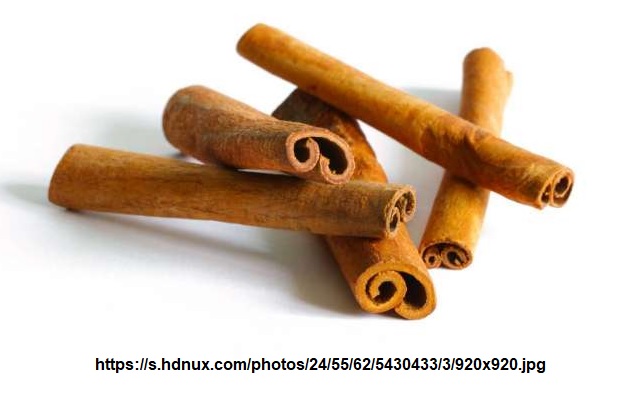 Illustration: Bark of the cinnamon tree
Illustration: Bark of the cinnamon tree
Frankincense is a fragrant resin obtained from the trunks of several species of trees in the genus Boswellia. It is used as incense, in perfumes, and for medicinal purposes.
Myrrh is a fragrant resin extracted from the trunks of certain spiny small trees found in the tropical regions of Africa and the Middle East. It is used for treating various ailments and as a fragrance, particularly for embalming the dead.
Aloes include over 500 different species and are a type of stemless plant with thick, succulent leaves and flowers. They are used as a fragrance, in beverages, for skin creams, and in some medicinal preparations.
Solomon lists a variety of herbs with beautiful flowers, pleasant scents, and medicinal properties to describe the allure and effects of Shulamite’s love. Shulamite and her love, expressed through their intimacy, are a multitude of fragrances, spices, and herbs that are precious, beneficial, and delightful to Solomon.
The phrase “a fountain of gardens, a well of living waters, and streams from Lebanon” means that just as a stream irrigates a garden, bringing life to the plants within it, so Shulamite brings vitality to the allure and effects of love. The term “living water” in the Bible refers to flowing, ever-fresh water. “Flowing from Lebanon” means flowing from the heights of love’s happiness, as Lebanon symbolizes the pinnacle of happiness in love.
Verse (4) can be paraphrased as follows: O my sister, my new bride! Your intimacy is truly wonderful! Your affection makes me more ecstatic than wine! And the fragrance of the perfume on your body is more delightful than all other scents! My new wife! Your lips are warm, soft, and as sweet as honey. Under your tongue are the sweetness of honey and the aroma of milk. Your clothes smell as fragrant as the cedar forests of Lebanon. My sister, my new bride, you are a closed garden, a sealed fountain, a sealed spring, reserved exclusively for me. The contours of your body are like a pomegranate garden with precious fruits, enhancing vitality and pleasure in our intimacy. Your body is filled with so many fragrances, drawing me in, nourishing me, healing me, and satisfying my desires, just like the scents, spices, and medicinal properties of spikenard, calamus, saffron, aloes, myrrh, and all the fine perfumes. You are the living source of the allure and effects of love, the spring of love’s happiness.
Spiritual Lesson: The Church of the Lord must be vibrant in its love for the Lord. The Church must be filled with the characteristics of love. Each member of the Church, like spikenard, calamus, saffron, aloes, myrrh, frankincense, and other fine perfumes, should exude a sweet fragrance to Christ. The vitality of the Church is the love of the Lord flowing abundantly within it.
(5) Shulamite: “Awake, O north wind; and come, thou south; blow upon my garden, that the spices thereof may flow out. Let my beloved come into his garden, and eat his pleasant fruits.”
In the land of Canaan, the northern wind brings freshness, while the southern wind brings warmth in the two seasons of hot and cold. Year-round, sexual desire awakens love when it is ready for physical union between husband and wife. Just as the wind blowing through the garden spreads the fragrances far and wide, so does the desire for intimacy enhance the allure of the body. Shulamite fully dedicates her body to Solomon. “My garden has now become your garden. My body has now become your body.” Shulamite invites Solomon to enjoy the pleasures of intimacy with her body. The pleasure of intimacy is like a precious fruit; to partake in it is to satisfy sexual desire through union. We will return to Song of Songs 4:16 in detail in the final lesson on the Song of Songs.
Verse (5) can be paraphrased as follows: Shulamite speaks to herself, “Let the sexual desire rise within me so that all the alluring aspects of my body may be awakened. The time has come for love to awaken and for my beloved to enjoy intimacy with my body. From now on, my body belongs to my beloved.”
Spiritual Lesson: When the time comes, on the Wedding Day of the Lamb, the Church will experience a mystical union with Christ.
(6) Solomon: “I am come into my garden, my sister, my spouse: I have gathered my myrrh with my spice; I have eaten my honeycomb with my honey; I have drunk my wine with my milk.”
Solomon responded to Shulamite’s invitation for intimacy, accepting her body’s offering. The union between the two occurred. Solomon delighted in the pleasure of intimacy with Shulamite, like someone gathering precious spices from the garden, eating the sweet honey of the garden, and drinking the fine wine and rich milk of the garden. In other words, Solomon experienced the utmost pleasure of intimacy with Shulamite.
Verse (6) can be paraphrased as follows: Solomon responds to Shulamite’s invitation for intimacy: “O my sister, my bride! I have delighted in the intimacy with you. I have enjoyed to the fullest the sweet, fragrant, and intoxicating pleasures of your body.”
Spiritual Lesson: The Church wholly belongs to Christ. The Church offers all its most precious things to Christ.
(7) The Daughters of Jerusalem: “Eat, O friends; drink, yea, drink abundantly, O beloved.”
While Solomon and Shulamite were enjoying their intimacy, the wedding feast was underway outside. The queens and concubines invited the wedding guests to eat, drink, and celebrate with the newlyweds, especially those who were in love.
Verse (7) can be paraphrased as follows: The song of the queens and concubines: “O friends, eat, drink! Especially those who are in love, drink abundantly to celebrate with the newlyweds.”
Spiritual Lesson: On the day of the Wedding Feast of the Lamb, all nations on earth will rejoice in the miraculous eternal union between Christ and the Church.
We would like to summarize our interpretation of the Song of Songs 4:1-5:1 as follows:
Beloved! My dearest! You are exceedingly beautiful! Your incredible beauty leaves me at a loss for words! The veil cannot hide your large, round eyes, which sparkle with innocence and are as beautiful as the dove’s eyes. Your dark, smooth hair is as lovely as the black fleece of the healthy, fat sheep resting on the slopes of Gilead. Your teeth are white and even, like a flock of sheep that has been shorn and washed. All are paired and well-matched. Your lips are rosy, like a thread of crimson. Your mouth is charming and graceful, whether smiling, speaking, or pouting. The veil cannot hide your cheeks, which are as rosy as pomegranate blossoms. Your neck is slender and tall, like the tower of David, adorned with weapons. The gold chain with silver ornaments around your neck is like a thousand shields of valiant warriors hanging on the tower. Your breasts are full and vibrant, like twin young gazelles grazing among the lilies.
My beloved! Until the morning breaks and the early breeze dispels the darkness, I will immerse myself in the fragrance of your body. Your breasts are like two fragrant peaks of myrrh. Your private parts are like two hills emitting the scent of frankincense. All are reserved just for me. My beloved! You are beautiful and pure, from your spirit to your flesh. You are chaste, complete, and without blemish!
My new wife! Come to me! Let us face all the circumstances of life together from the heights of love, like the mountains of Lebanon. Our love will grow stronger and more enduring over time. Even if difficulties arise in life, we will overcome them together, just as we would overcome lion’s dens and the mountains of leopards. You have captured my heart! My sister! My new wife! You have won my heart with a loving, earnest look from your eyes and with a necklace around your neck that highlights your noble beauty.
My sister, my new wife! Your intimacy is truly wonderful! Your affection leaves me more intoxicated than wine! And the scent of the perfume on your body is more fragrant than any aroma! My new wife! Your lips are warm, soft, and as sweet as honey. Under your tongue is the sweetness of honey and the fragrance of milk. Your clothes smell as delightful as the fragrance of the cedar forests of Lebanon. My sister, my new wife, you are like a sealed garden, a fresh spring of water locked away, a sealed fountain reserved for me. The contours of your body are like a paradise garden of pomegranates with precious fruit, enhancing vitality and pleasure in our intimacy. Your body is filled with all kinds of fragrances, attracting me, nourishing me, healing me, and satisfying my desires, like the fragrances, spices, and medicinal qualities of spikenard, camphire, saffron, calamus, myrrh, and all the frankincense, myrrh, and aloe, with all their top-quality fragrances. You are a vibrant source of the allure and effects of love, a fountain of love’s happiness.
O desire, arise within me, so that every enticing feature of my body may be awakened. The time has come for love to be aroused and for my beloved to enjoy intimacy with my body. From now on, my body belongs to my beloved.
O my sister, my new bride! I have found delight in intimacy with you. I have enjoyed to the fullest the sweet, fragrant, and intoxicating pleasures of your body.
O friends, eat and drink! Especially those who are in love, drink abundantly to celebrate with the newlyweds.
And here is the poem:
The Seal of Passion
Veiled beauty, with eyes like doves,
Your gaze ignites innocence and love.
My heart is stirred by your pure sight,
Your hair, dark as night, a wondrous delight.
Teeth white as newly shorn sheep,
Lips crimson, gracefully steep.
Cheeks blush like pomegranate bloom,
Your neck, David’s tower, dispels all gloom.
Breasts full, like twin gazelles,
Among lilies, where beauty dwells.
Till dawn breaks, in your scent I’ll stay,
Myrrh and frankincense, love’s bouquet.
Pure and chaste, from flesh to soul,
My wife, with you I am whole.
From Lebanon’s heights, we’ll face the call,
Our love endures, standing tall.
Your gaze and grace have won my heart,
My sister, wife, we’ll never part.
Your touch intoxicates like wine,
Your fragrance, cedar’s scent divine.
A sealed garden, a hidden spring,
To me alone, your treasures bring.
Your body, a paradise of pleasure,
Filled with spices beyond measure.
Arise, O love, let passion wake,
This sacred bond we’ll never break.
Friends, rejoice! Eat and drink!
To love’s sweet nectar, let us sink.
Here, we have completed our exploration of the meaning of Song of Solomon 4:1-5:1.
May the love, grace, and fellowship of God forever cover each of us. Amen!
Timothy Christian Huynh
Priscilla Christian Huynh
10/06/2018

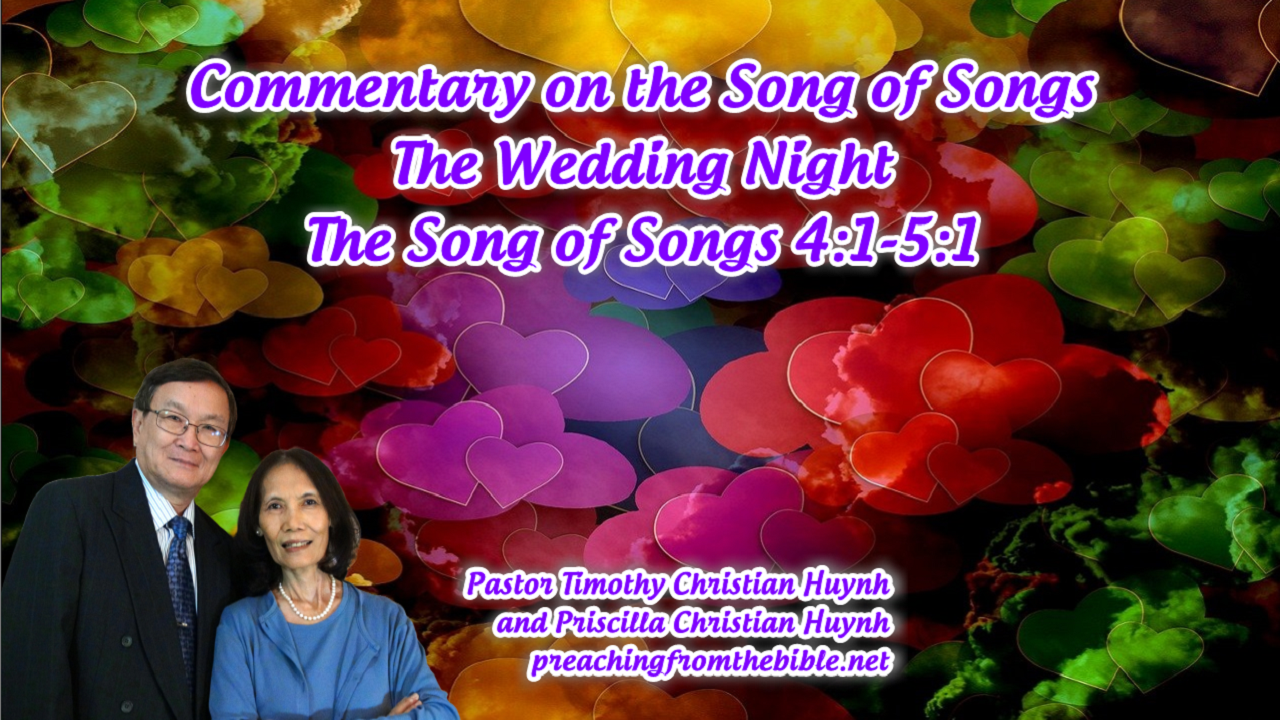


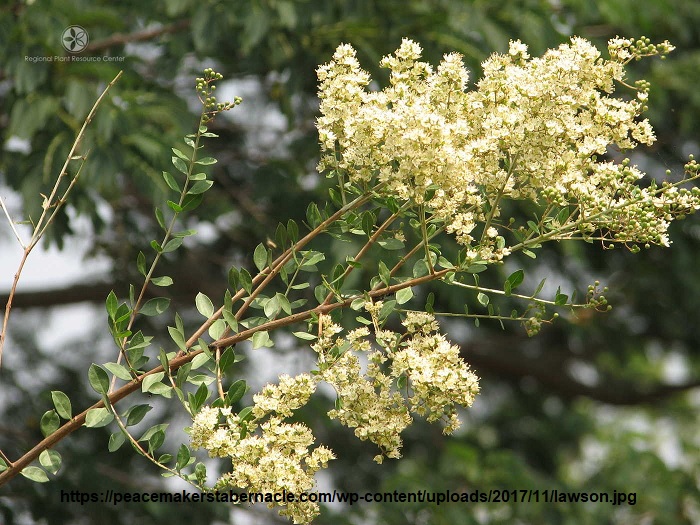
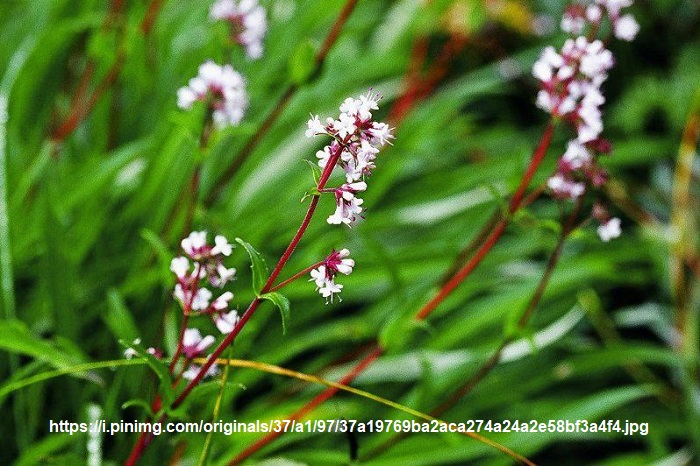
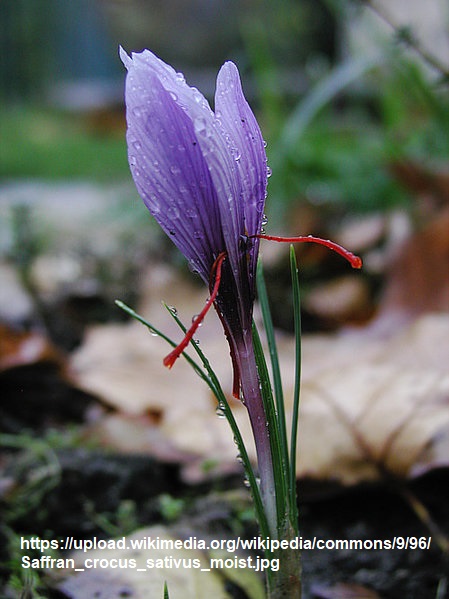


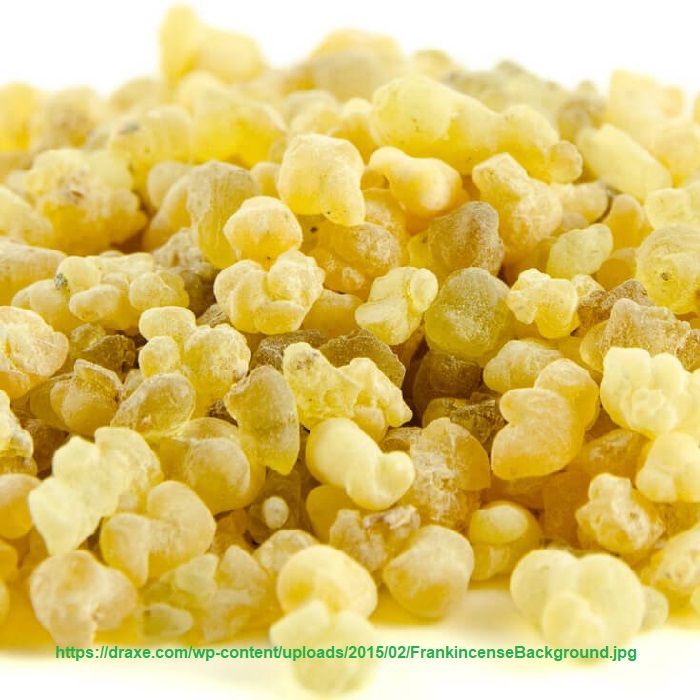
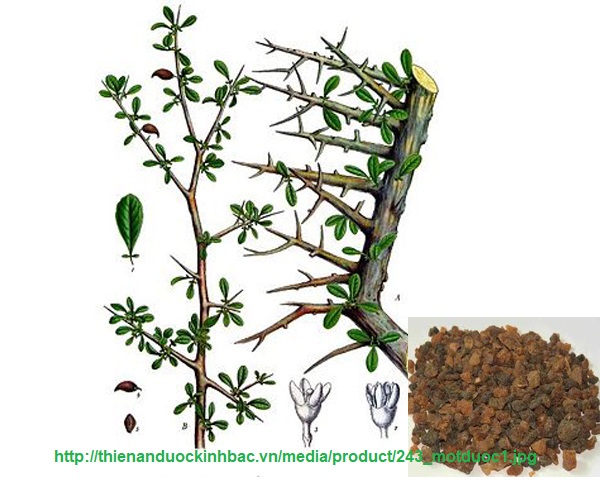
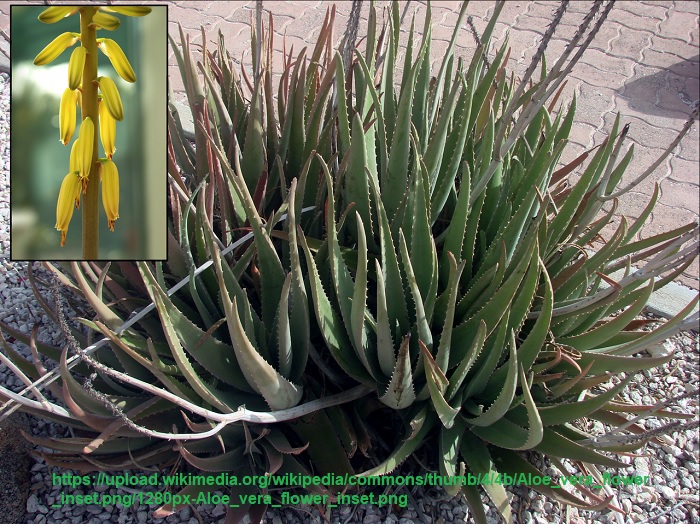









 Users Today : 9
Users Today : 9 Users Yesterday : 17
Users Yesterday : 17 Users This Year : 4638
Users This Year : 4638 Total Users : 52008
Total Users : 52008 Views Today : 10
Views Today : 10 Total views : 95241
Total views : 95241 Who's Online : 0
Who's Online : 0